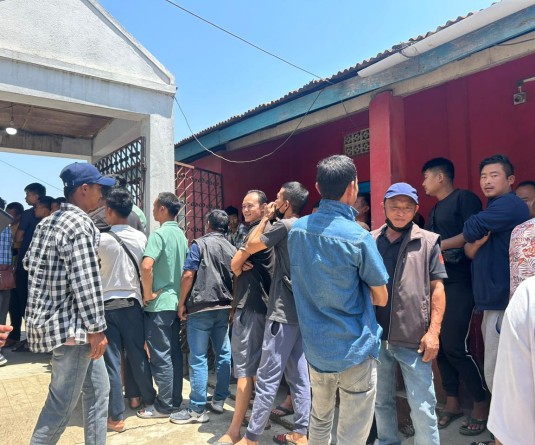The COVID-19 pandemic also revived the traditional kitchen garden which had almost lost its sheen, as more and more people turned towards kitchen gardening during the lockdown. (Morung Photo)
Our Correspondent
Kohima | May 23
The varied agro climatic zones of Nagaland state provides conditions that are well suited for cultivation of fruits, vegetables, flowers, spices, plantation crops, medicinal and aromatic and other horticultural crops.
Horticulture is one of the most important sectors that generate relatively higher income and employment opportunity in rural areas besides providing nutritional security, according to the Annual Administrative Report 2020-2021 of horticulture department, Nagaland.
The report stated that though the area under horticultural crops is less than one fifth of total cropped area of the state, its share to the total agricultural growth is significantly high, which is overwhelming.
The report stated that importance on nutritional value of fruits and vegetables among the tribal people of this hilly state is gaining momentum and their consumption has increased, thereby raising the demand.
Technology break-through in horticultural crops has improved the quality and yield considerably, besides, bringing higher income to the farmers leading to crop diversification, the report maintained.
There has been considerable increase in area and production under horticultural crops over the last decade, the report stated.
On the other hand, the report stated that “The year 2020 placed before us an unprecedented situation due to the COVID-19 pandemic which badly affected not only us but people all over the world. Farmers were the most affected as the agricultural value chain in India was adversely affected by the COVID- 19 crisis and the resultant lockdown which saw a knee-jerk reaction of a mass exodus of migrant labour back to rural hometowns, completely throwing off balance the harvesting process of Rabi crops resulting in major liquidity issues for the farmers.”
The report stated that the state along with the rest of the country witnessed massive disruptions in the food distribution channels with strong negative consequences for the most vulnerable in the society.
Farmers and entrepreneurs faced losses due to wastage of fresh fruits and vegetables due to their inability to transport them from point of production to local markets or supermarkets in nearby towns or cities and the cost of unsold produce pinched farmers’ finances drastically.
The department however expressed belief that the COVID-19 pandemic also had a positive outcome which was that, it gave impetus to upcoming start-ups involved in Farm-to-consumer brands, app-based marketing platforms and home delivery services etc of various horticultural commodities.
The pandemic helped catalyze entrepreneurship development in the state especially in horticulture sector which witnessed a very impressive growth triggered by the pandemic, the report stated.
In addition, the report stated that the pandemic also brought in vogue, the traditional kitchen garden which had almost lost its sheen, as more and more people turned towards kitchen gardening during the lockdown not only to meet the family’s demand for fresh fruits and vegetables but also as recreational activity to beat away the stress built up due to the pandemic.
The report stated that while it is impossible for the department to quantify the losses suffered and the many opportunities missed by the farmers, the department assured that “true to our values of delivering our commitment to our farmers and reinvigorated in our mission to develop the horticulture sector and transform our state into a ‘Healthy, Wealthy and Sustainable’ society.”




